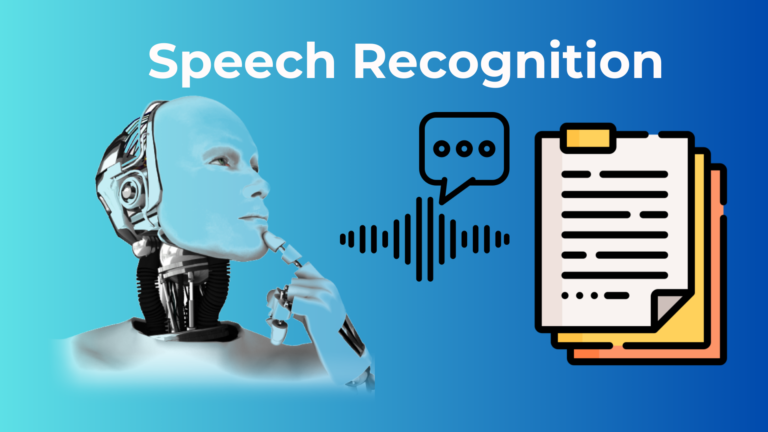Date of publication:
27 Jun. 24Machine Learning for Enhancing Marketing and Achieving More Accurate Predictions
The use of machine learning (ML) in marketing can significantly improve the effectiveness of campaigns, optimize strategies, and provide more accurate forecasting. However, the introduction of machine learning into marketing requires not only technical knowledge but also an understanding of the business processes and goals of the company.
Experts express the opinion that active machine learning in the near future can become as useful as the Internet. ML will allow you not to delve into minor details and nuances of various processes. It will only be necessary to load data into the system, on the basis of which reports are generated that significantly simplify the work of a person. More recently, it was too expensive to establish the infrastructure and form a team of specialists. In today’s realities, IBM Watson, Microsoft Azure, Google, and Amazon have launched cloud platforms for ML. And Idibon, Metamind, Dato, and Monkeylearn have created products that are successfully used by companies based on these platforms.
Marketing Directions That Are Relevant For The Introduction Of Machine Learning
For the near future, according to Jeffrey Nimeroff, IT director for marketing at Zeta Global, three areas of marketing automation are relevant. These include:
- Analysis of client behavior: This will be based on understanding what kind of content is a priority for the client—what they are subscribed to, what books they read, and what style and genre of music they prefer.
- Automated data visualization: This will become more diverse and comfortable for the user.
- Conservative planning of steps: This is a continuous workflow that will become possible thanks to the algorithm. When the system performs one block of tasks, another is immediately formed from it.
Machine learning is not a know-how of recent years; however, due to an increase in data and accessibility, this technology has gained more and more popularity in recent years.
Prediction Of Consumer Behavior
To successfully conduct and develop its business, any company must be well-versed in the requests, interests, and priorities of its customers. Without this, it is impossible to successfully work with the target audience and continuously replenish its ranks. In the matter of better understanding customer requirements, effective assistance can be provided by machine learning, due to:
- Segmentation of the audience, analysis of large volumes of customer data, and the allocation of their main characteristics to use more personalized and effective marketing campaigns.
- Prediction of consumer behavior in the process of their interaction with a service or product proposed by a company, during which models may predict the likelihood that the client will make a purchase or respond to advertising.
Personalized Marketing
An invaluable benefit of ML can also be found in the field of personalization of marketing strategies. Firstly, this concerns the individualization of content. Machine learning algorithms can analyze customer preferences, on the basis of which personalized content is offered. This may include individualized emails, recommendations of goods, as well as dynamic content on websites. The process of sending personalized messages can also be automated.
In addition, machine learning will help companies solve the problem of adapting various marketing strategies for any stage of interaction with a specific client, modeling their life cycle. By relying on the history of communication with the user, companies can choose the most acceptable format of communication at the stages of retention and loyalty.
Optimization of Prices and Campaigns
The active implementation of algorithms and machine learning technologies will optimize many marketing processes and their results, including advertising campaigns. The algorithms involved can automatically analyze the results of advertising campaigns and determine their best formats and channels. Based on the reports received, marketers will be able to optimize budgets to achieve maximum impact on the target audience.
Machine learning can also have a serious influence on the formation of prices for a product or service offered by the company. For this, market analysis and trend forecasting can be used. It is also useful in monitoring the activity of competitors, as it provides objective information about price formation trends and allows companies to optimize their own pricing.
Analysis of Content and Mood
Priority areas for the use of machine learning (ML) in marketing include analyzing the effectiveness of the content used to achieve various goals, as well as understanding user sentiments regarding the brand and its products. When analyzing content, ML algorithms and technologies, using pre-collected data, help determine the most suitable content for interaction with the target audience. To create more attractive material in the future, assessments will be effective in topics, formats, headings, and images.
To achieve various marketing strategy goals, attracting and retaining a larger number of customers, the vector of emotional tone plays an important role. Natural language processing algorithms help determine the real attitudes of customers toward the brand. They can be used to analyze the emotional tone of reviews, comments, and other text data.
Machine Learning Algorithms for Marketing
The use of artificial intelligence and machine learning is based on the use of certain algorithms. These are sets of instructions that describe the sequence of actions to solve a specific problem or a set of precisely specified rules to solve a certain class of problems. Among the most popular ML algorithms in marketing are:
- Linear regression;
- Clustering;
- Decision trees;
- Neural networks.
It is important to understand what each of them entails.
Linear Regression
The simplest algorithm used in ML is linear regression. It is usually used to create a model of the relationship between two (or more) variables. There are two types of linear regression: simple and multiple. Simple linear regression is based on one independent and one dependent variable. Multiple linear regression involves one dependent and several independent variables.
Clustering
For grouping similar items, a method called clustering is used. This method is involved in tasks of unsupervised machine learning. In this case, the data set is not labeled, and the task is to ensure that similar items are grouped together.
Decision Trees
A model that, in addition to ML, is used in planning and statistics is the decision tree. To evaluate possible events associated with a specific problem, it uses a tree structure of decisions/consequences. Visually, it represents a scheme consisting of nodes, each of which is called a node. The last nodes of the decision tree are the leaves. Forecasts are compiled based on the assessment of each node, starting from the first (tree root). Then, following the branch consistent with the assessment, there is a transition to the next node.
Neural Networks
Artificial intelligence that teaches computers to process data in the same way as the human brain does is known as neural networks. This ML process, related to deep learning, uses interconnected nodes or neurons in a layered structure that resembles the human brain.
The Use of Machine Learning in Various Marketing Channels
Technologies and machine learning algorithms can be used in a variety of marketing channels. Their use will optimize various directions and marketing strategies. Among them are content marketing, social media, search optimization, advertising, and email.
Machine Learning in Content Marketing
With the help of ML, you can create content that is adapted to a specific audience. For example, brief descriptions that are optimized for SEO can be automatically generated. It is possible to create basic articles on specific topics. Also, using natural language processing, text or voice content can be analyzed. After that, it is classified based on topic, mood, or tone to understand the consumer and track data about them. For example, IBM Watson’s Tone Analyzer analyzes buyer feedback to determine the tone of consumer comments about the product.
Machine Learning in Social Media
Social channels are the main territory for companies seeking to improve customer service and optimize business operations. In this, ML algorithms will be useful. For example, using the information obtained from user data, content for social networks can be automatically created across several channels, and shortened links and hashtags can be automatically launched.
Machine Learning in Search Optimization
In the field of search engine optimization (SEO), ML helps marketers and site optimizers improve the visibility of their web resources in search engines. This is possible through the automation of technical optimization processes, such as managing the site structure, processing metadata, and improving page loading speed. It also identifies patterns of successful content strategies that help optimizers create more attractive and targeted content.
Machine Learning in E-mail and Advertising
To improve targeting, personalization, forecasting results, and process optimization, machine learning is used in e-mail and advertising. For example, in e-mail, large volumes of data are analyzed for automatic detection and filtering of unwanted messages (spam). In advertising, machine learning can be used to optimize bids and budgets of advertising campaigns. Algorithms can predict the likelihood of conversions and optimize rates and budgets to maximize results.
Advantages and Limitations of Machine Learning in Marketing
Innovations in any field, including marketing, have their strengths and disadvantages. When it comes to the implementation of machine learning in marketing, the advantages significantly outweigh the disadvantages. Among the advantages, it is worth highlighting the possibility of content personalization, automation, and deeper, more versatile data analysis. However, it is important to remember the limitations as well. These include the still relatively high cost of technology, potential machine errors, and risks associated with the protection of personal data.
Advantages, including Automation and Accuracy
Artificial intelligence technologies and machine learning are, according to most experts, the realities of the present and, to a greater extent, the near future. There are many strengths in this direction. Machine learning can optimize many processes in marketing and help improve them by:
- Automating routine tasks, such as data analysis, sending personalized letters, and other operations.
- Increasing the efficiency of targeting by more accurately determining target audiences based on many parameters, such as user behavior, demographics, and interests.
- Personalizing content by adapting it to a particular user, increasing relevance and, consequently, the level of engagement.
- Optimizing advertising campaigns to achieve marketing goals by improving, for example, bids and budgets.
- Forecasting the results of marketing campaigns for adaptation and making adjustments to the strategy.
- Analyzing large amounts of data through effective processing, allowing the identification of trends and hidden patterns.
Limitations (the Need for Quality Data and Interpretability)
Despite the many advantages, there are a few drawbacks to implementing machine learning, which should certainly be taken into account when deciding to use artificial intelligence algorithms in business activities. It is worth keeping in mind:
- The need for training models on high-quality and representative data, as incorrect or insufficient data can lead to inaccurate conclusions.
- Expert understanding of the business and its features for the correct interpretation of machine learning results and decision-making based on these results.
- The difficulty of interpreting models, such as deep neural networks, which creates challenges in explaining the decisions made.
- Dependence on the choice of algorithms and their parameters, as the wrong choice can lead to undesirable results.
- Confidentiality and security issues, as the use of data for training models can raise privacy concerns, and there is also a risk of attacks on machine learning models.
Additionally, for the successful implementation of machine learning in marketing strategies, specialists need to constantly update models to account for changes in user behavior, search engines, and market trends.



